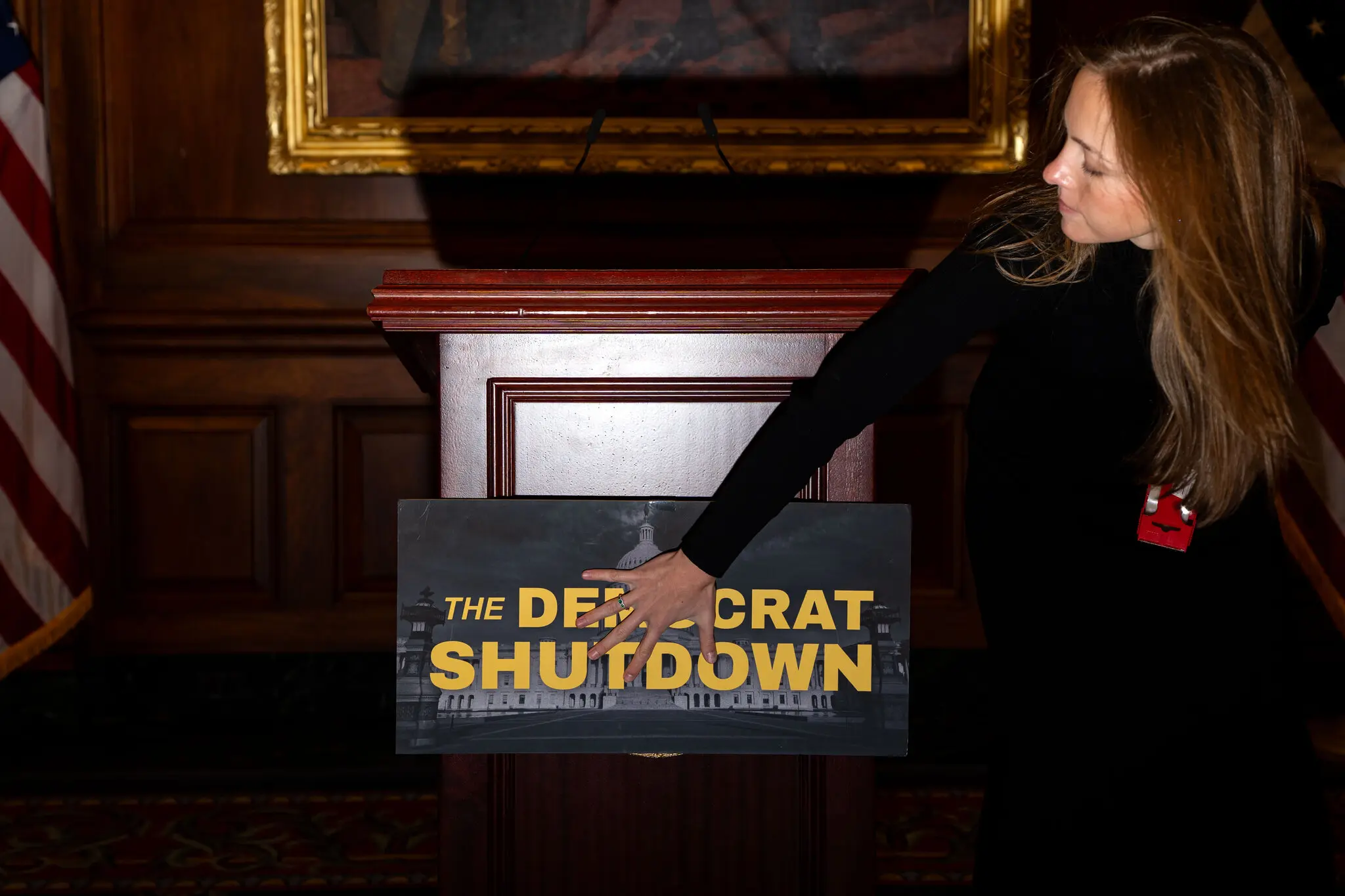WASHINGTON — Senate Democrats on Thursday blocked a Republican-backed measure aimed at providing pay to federal employees who have been working without compensation during the ongoing government shutdown, now entering its 23rd day. The vote underscored the deepening partisan divide in Washington, with neither side showing signs of compromise as the stalemate drags on.
The bill, sponsored by Senator Ron Johnson (R–Wis.), fell short in a 54–45 vote, missing the 60 votes needed to advance. Notably, three Senate Democrats — John Fetterman of Pennsylvania, and Jon Ossoff and Raphael Warnock of Georgia — broke party lines to support the measure.
Democrats opposed the legislation, arguing that it would give President Trump excessive discretion to determine which workers receive pay during the shutdown. “This bill hands the president and his top aides unchecked authority to decide who gets paid and who doesn’t,” said Senate Minority Leader Chuck Schumer (D–N.Y.). “It’s not a question of compassion — it’s a question of politics.”
Republicans, however, framed the measure as a practical step to ensure essential government functions continue and to provide relief to federal employees caught in the middle of a funding impasse. Senate Majority Leader John Thune (R–S.D.) criticized Democrats during a heated floor speech, suggesting that party loyalty outweighed concern for workers.
“This legislation would have ensured that federal employees aren’t forced to go without pay while serving the American people,” Thune said. “Democrats opposed it simply because it came from Republicans.” He added that a “clean continuing resolution” to reopen the government, which would pay all federal employees, was already available on the Senate desk.
The Johnson bill focused only on essential employees, leaving furloughed workers — roughly 700,000 government staff sent home without pay — without immediate compensation. Democrats argued that this selective approach could allow the administration to favor agencies aligned with its political priorities while punishing others.
Two additional proposals from Democrats were also blocked by Senate Republicans. One would have provided pay to both essential and furloughed workers, while the second included protections against further layoffs during the shutdown. Both measures were intended to mitigate the growing hardship faced by federal employees and their families.
During shutdowns, employees are categorized as either “essential” or “non-essential.” Essential workers, such as law enforcement officers, air traffic controllers, and Social Security Administration staff, must continue performing their duties despite not receiving a paycheck. Non-essential workers, meanwhile, are furloughed and stay home until funding is restored.
Democrats argue that paying only essential workers could incentivize the administration to declare employees in politically favored agencies as “essential,” while ignoring others. Senator Tim Kaine (D–Va.) said, “This gives the president the ability to decide who’s essential and who isn’t. What we are seeing is a political tool being used to reward allies and punish dissenters.”
The Trump administration has already used the shutdown as leverage, protecting pay for military personnel and Immigration and Customs Enforcement agents while canceling billions in federal grants in Democratic-led states and districts. Since the shutdown began, thousands of federal workers have faced furloughs, and projects ranging from scientific research to infrastructure development have been delayed or halted entirely.
President Trump has repeatedly signaled that he may deny furloughed employees automatic back pay, despite having signed legislation during his first term guaranteeing it. The move has raised concerns among lawmakers and labor advocates about the long-term implications for federal workers’ financial stability.
“The stakes are high for everyday Americans,” said Schumer. “The president has made clear he is willing to use federal employees as pawns in a political game. That’s unacceptable.”
The standoff also reflects a broader dispute over health care subsidies introduced during the coronavirus pandemic. Democrats have insisted that any government funding bill include an extension of these subsidies, while Republicans have refused to negotiate on the matter until the government reopens. This impasse has created a cycle where political maneuvering delays relief for federal workers.
Economic analysts warn that prolonged shutdowns have ripple effects beyond the federal workforce. “The longer this shutdown continues, the greater the strain on local economies, small businesses, and families that rely on federal paychecks,” said Elaine McMahon, a senior economist at the Brookings Institution. “We’re looking at a real slowdown in government-dependent sectors.”
The human impact is immediate. Federal workers who continue to report to work without pay face mounting financial pressure, while furloughed employees struggle to cover mortgages, rent, and daily expenses. The uncertainty has led some employees to seek temporary work, rely on credit, or access food assistance programs.
In addition to the economic fallout, government operations are increasingly affected. Critical services such as air traffic control, law enforcement, and social security administration continue under strain, while non-essential functions are paused, creating delays and operational backlogs. Experts warn that the longer shutdown may compromise public trust in government efficiency.
Senate Republicans have argued that the delay is a negotiating tactic by Democrats, who they say are leveraging federal employees’ pay to advance unrelated political goals. “We are ready to reopen government,” said Thune. “Democrats are holding federal workers hostage over unrelated policy issues.”
Despite these tensions, both parties acknowledge the need for a resolution. The political standoff highlights deep ideological differences over federal spending, executive authority, and health care policy — but leaves thousands of federal employees caught in the middle.
As the shutdown enters its fourth week, the likelihood of compromise remains uncertain. For federal employees, the situation continues to create financial hardship, operational stress, and uncertainty about when normal pay and operations will resume.

